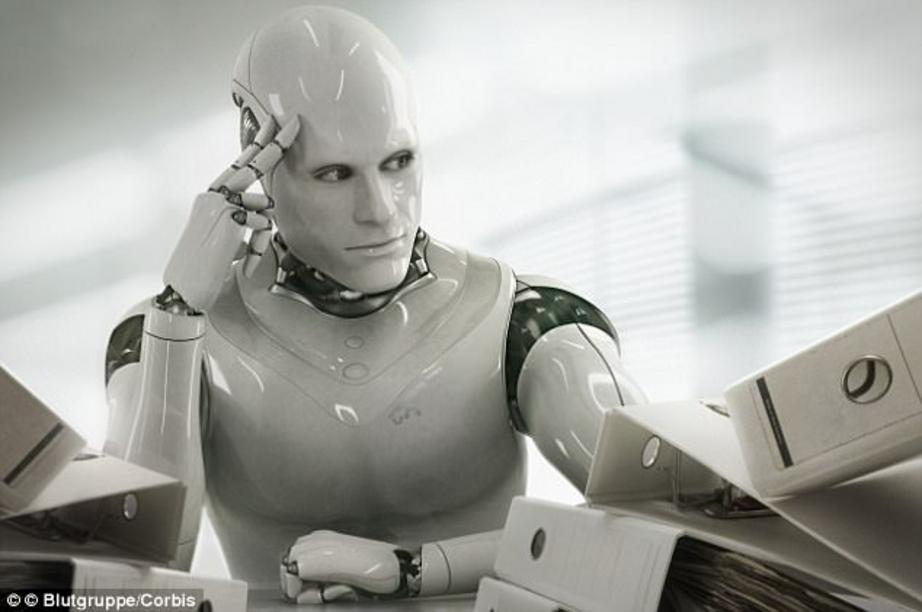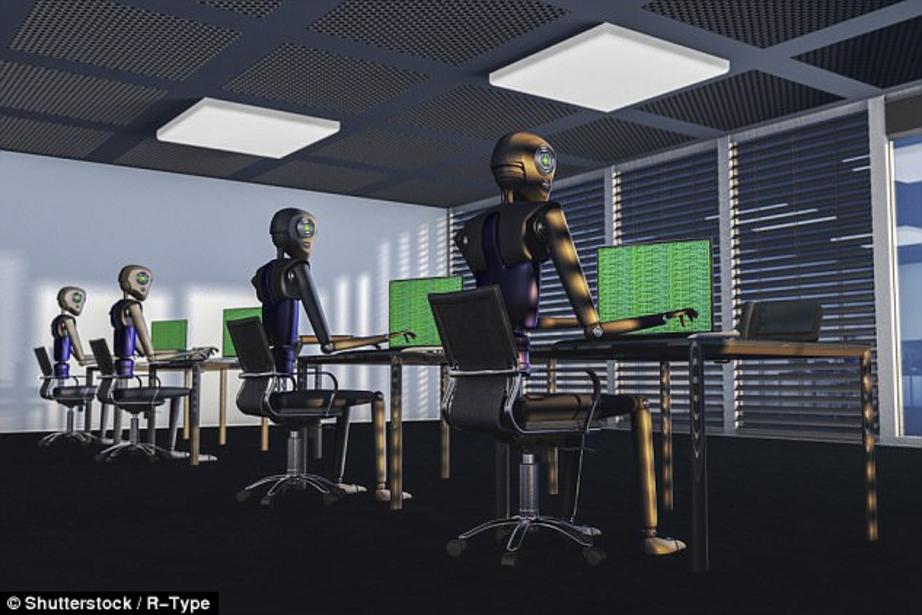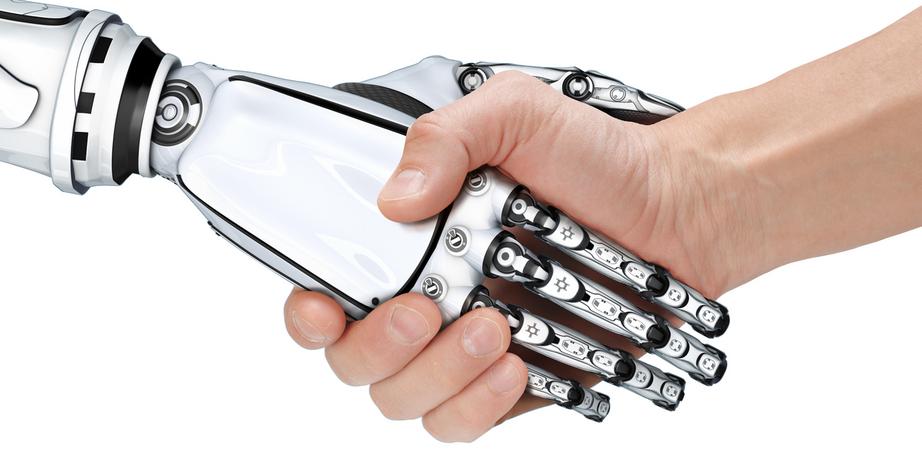Say goodbye to your bank teller: bankers say customers will interact with AI powered machines within the next three years
- Four in five bankers believe AI will 'revolution' the banking sector
- Also believe their jobs will be replaced by technology within three years
- 60% said the main reason to use AI is 'to gain data analysis and insights'
Artificial intelligence (AI) will become the primary way banks interact with their customers within the next three years, according to a new report.
Four in five bankers believe AI will 'revolutionize' the way in which banks gather information as well as how they interact with their clients.
More than three quarters of respondents to the survey believed that AI would enable more simple user interfaces, which would help banks create a more human-like customer experience.

AI will become the primary way banks interact with their customers within the next three years, according to a new report. Four in five bankers believe AI will 'revolutionize' the way in which banks gather information as well as how they interact with their clients
The new report, the Accenture Banking Technology Vision 2017 report, surveyed more than 600 top bankers and also consulted tech industry experts and academics.
Artificial intelligence - the technology behind driverless cars, drones and voice-recognition software - is seen by the financial world as a key technology which, along with other 'fintech' innovations such as blockchain, will change the face of banking in the coming years.
'The big paradox here is that people think technology will lead to banking becoming more and more automated and less and less personalized, but what we've seen coming through here is the view that technology will actually help banking become a lot more personalized,' said Alan McIntyre, head of the Accenture's banking practice and co-author of the report.
'(It) will give people the impression that the bank knows them a lot better, and in many ways it will take banking back to the feeling that people had when there were more human interactions.'

The top reason for using AI for user interfaces was 'to gain data analysis and insights'. But worries over the privacy of data were cited as the top challenge, with one in three also saying that the fact users often prefer human interactions could also be a problem
The top reason for using AI for user interfaces, cited by 60 percent of the bankers surveyed, was 'to gain data analysis and insights'.
But worries over the privacy of data were cited as the top challenge, with one in three also saying that the fact users often prefer human interactions could also be a problem.
The report also found that, while the number of human interactions in bank branches or over the phone was falling and would continue to do so, the quality and importance of human contact would increase.

WILL A ROBOT TAKE YOUR JOB?
While there are many who fear robots are on the verge of stealing our jobs, it seems they have a weak spot - flat packed furniture.
Much like stairs posed a problem for the Daleks in Doctor Who, the Achilles Heel of modern intelligent robots appears to be the baffling world of Ikea furniture.
A group of engineers set themselves the goal of developing a robot capable of undertaking this baffling task – by getting one to assemble a chair from the Swedish furniture store.
Francisco Suarz-Ruiz and Quang-Cuong Pham, from the Nanyang Technological University in Singapore, are using two robotic arms equipped with grippers to assemble the Ikea chair.
Yet despite being some of the most advanced robotic equipment around, assembling a full chair still seemed beyond the robot.
The furthest the scientists managed to get is to insert a piece of doweling into the end of one of the legs – something that takes the technology a minute and a half to achieve.
The same task would take the average homeowner seconds when they are assembling their own chairs.
However, there are a growing number of robots now taking on roles performed by humans.
An office in Milton Keynes is using a robot office manager to monitor staff and keep the office tidy.
Other offices in California have begun using security robots to patrol their premises while droids capable to delivering room service are now being used in several hotels.

